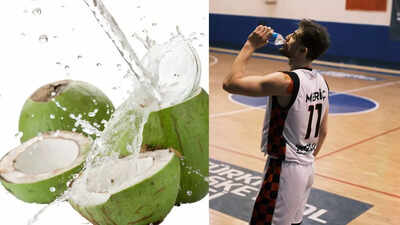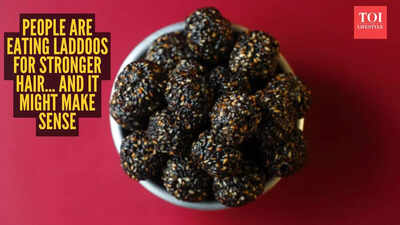Hydration is a cornerstone of athletic performance, and athletes often rely on commercial sports drinks to replenish fluids and electrolytes after intense exercise. However, natural alternatives like coconut water have gained popularity for their potential health benefits and refreshing taste. A study published in the Journal of the International Society of Sports Nutrition explored how coconut water compares to traditional carbohydrate-electrolyte sports drinks in promoting rehydration and supporting physical performance. By examining exercise-trained men who underwent dehydration through treadmill workouts, the research evaluated how different beverages—including bottled water, pure coconut water, coconut water from concentrate, and a sports drink—affected hydration markers and overall exercise recovery. This study offers valuable insights into whether coconut water can serve as a natural, effective alternative for athletes seeking optimal hydration.
Coconut water nutrition: Benefits, minerals, and hydration power
Coconut water is a clear liquid extracted from young green coconuts. Naturally low in calories and sugars, it is often praised as nature’s electrolyte beverage. It contains essential minerals like potassium, magnesium, and calcium, which are vital for muscle function and maintaining fluid balance.Nutritional Composition of Coconut Water (Per 1 cup / 240 ml)
- Calories: ~45
- Carbohydrates: ~9 g (primarily natural sugars)
- Potassium: ~600 mg
- Sodium: ~40–60 mg
- Magnesium and calcium: trace amounts
- Antioxidants: help combat oxidative stress
Benefits of drinking coconut water
Coconut water’s high potassium content is a standout feature, often exceeding that of a banana, making it excellent for preventing muscle cramps. Its antioxidants help protect cells from damage caused by free radicals, while the low calorie and sugar content make it a lighter, healthier hydration option. Moreover, being free from artificial additives, it is a natural, minimally processed beverage.
Limitations to consider
One downside of coconut water is its relatively low sodium content, which may not suffice for people engaging in intense workouts or those who sweat heavily. Additionally, taste can vary significantly depending on the coconut variety and freshness, which might affect regular consumption.Coconut water works best for everyday hydration, light to moderate physical activity, recovery from mild dehydration, and cooling down during hot weather. It is a natural alternative for people seeking nutrition alongside hydration.
Sports drinks benefits and considerations for athletes
Unlike coconut water, sports drinks are specifically engineered for athletes. They are designed to replace fluids and electrolytes lost during prolonged or high-intensity exercise. Most sports drinks contain higher sodium levels, simple carbohydrates, and sometimes additional ingredients like caffeine or vitamins to enhance performance.Nutritional profile of sports drinks (Per 1 cup / 240 ml, average)
- Calories: ~80–120
- Carbohydrates: ~20–30 g (mostly added sugars)
- Sodium: ~110–170 mg
- Potassium: ~30–50 mg
- Other additives: artificial colors, flavors, sometimes caffeine
Benefits of sports drinks
The primary advantage of sports drinks is their high sodium content, which efficiently replaces salt lost through heavy sweating, preventing dehydration. The added sugars provide a rapid source of energy for endurance athletes, and the standardized taste ensures a convenient and consistent drinking experience.
Drawbacks and health considerations
However, sports drinks are not ideal for everyone. The high sugar content can lead to energy spikes followed by crashes. Artificial flavors, colors, and preservatives also make them less suitable for casual hydration or daily consumption. For short workouts or low-intensity activities, sports drinks are often unnecessary.Sports drinks are most effective for intense, long-duration workouts over 60–90 minutes, endurance training sessions, or exercising in hot and humid conditions where heavy sweating occurs.
Coconut water vs Sports drinks: Which is better for hydration
When it comes to hydration, the choice between coconut water and sports drinks depends on several factors including activity intensity, duration, and personal health goals.
- Everyday hydration and light exercise
For casual hydration or moderate physical activity, coconut water is superior. Its natural electrolytes, lower sugar content, and beneficial minerals support fluid balance without adding unnecessary calories.
- Intense workouts and heavy sweating
For high-intensity workouts or long-distance endurance activities, sports drinks may provide better hydration. The combination of higher sodium and simple carbohydrates ensures rapid electrolyte replacement and energy replenishment.
- Health and nutritional perspective
From a general health standpoint, coconut water is a healthier long-term choice. It avoids excess sugar, artificial additives, and preservatives, making it a natural option for overall wellness and hydration.Also Read | THIS food rich in Vitamin D can boost your immunity, strengthen bones, and improve overall wellness












